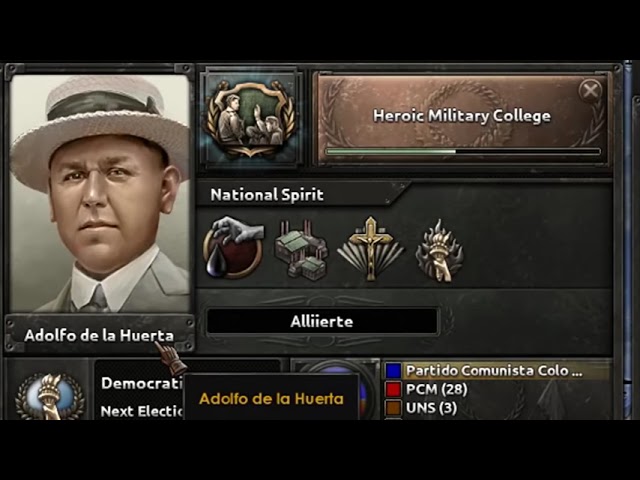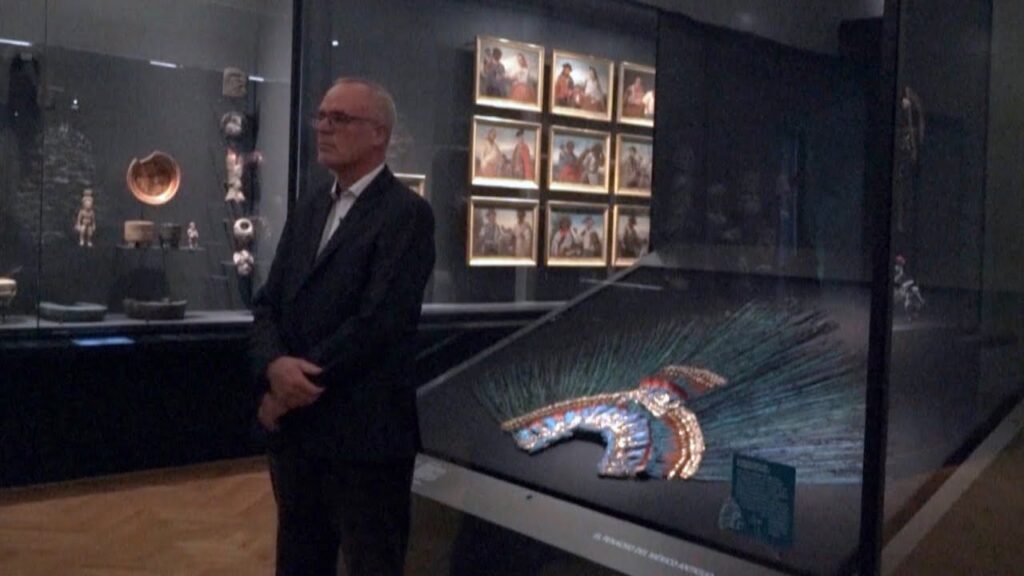Introducing Adolfo de la Huerta: The Man Who Stood Up to Díaz
Adolfo de la Huerta holds a unique place in Mexico’s vivid history, standing as a symbol of courage and defiance during a time of political upheaval. As a liberal politician and interim President of Mexico in 1920, he played a pivotal role in the country’s transition from the oppressive rule of Porfirio Díaz to a more democratic dispensation. His unwavering stance against autocracy still resonates with many in the nation and beyond.
His early life was marked by a passionate involvement in music and teaching, but it was his fervent belief in democracy that propelled him into the cauldron of Mexican politics. De la Huerta’s legend grew from his commitment to social justice and an unyielding belief in the constitutional government. This dedication would eventually pit him directly against the long-standing Díaz regime.
In the historic year of 1920, Adolfo de la Huerta took the mantle as interim President following the fall of Venustiano Carranza. It was a period fraught with tension and uncertainty, but de la Huerta steered the nation with a focus on reconciliation and stability. His term, although brief, was crucial in laying the groundwork for the eventual establishment of a civilian government and the end of military strongmen in Mexico.
One of his most notable contributions was the negotiation of the Agua Prieta Plan, which ultimately led to a peaceful resolution of conflict and a more equitable political landscape. De la Huerta’s bravery not only in facing Díaz but also in confronting the challenges within revolutionary factions, earned him a place of honor among Mexican revolutionaries and reformers.
Despite his tenure as president being short-lived, Adolfo de la Huerta’s impact was long-lasting. He is celebrated as a man who dared to defy tyranny, and his stand against Díaz is a compelling chapter in Mexico’s journey towards democracy. His legacy is a poignant reminder that even in the face of formidable obstacles, one individual’s steadfast determination can alter the course of history.
Exploring the Various Trenches: Adolfo de la Huerta’s Political Journey
Adolfo de la Huerta’s journey through the political landscape of Mexico was as varied as the country’s terrain. Born on May 26, 1881, in Guaymas, Sonora, de la Huerta was a man of many talents – a musician, a businessman, and an educator – before he found his calling in politics. His entry into public service was precipitated by the tumultuous period of the Mexican Revolution, a time when the nation was rife with conflict and yearning for change. De la Huerta’s political acumen became evident when he became the governor of his home state, Sonora, in 1917. Under his governance, Sonora experienced a period of stability and economic growth that stood in stark contrast to much of the strife occurring elsewhere in the country. His successful administration garnered him national attention and set the stage for his subsequent rise to higher office.
In the wake of the revolution, de la Huerta’s prominence in Mexican politics continued to grow. He played a pivotal role in the formulation of the Plan of Agua Prieta which ultimately led to the overthrow of President Venustiano Carranza. His leadership in this rebellion showcased his adeptness at both military and political strategy. Following Carranza’s fall, de la Huerta was appointed as the interim president of Mexico in 1920. His short term was marked by efforts to stabilize the country and reconcile the various factions that had been left splintered in the wake of the decade-long revolution. As president, he worked to restore peace, call for elections, and set into motion a process that aimed to return Mexico to constitutional normalcy.
De la Huerta’s presidency, albeit brief, was crucial in laying the groundwork for the reconstruction of Mexico. However, his commitment to democratic ideals and the stabilization of the country was soon put to the test. After the election of Alvaro Obregon, De la Huerta found himself in opposition to the new regime. In 1923, he led a failed revolt against President Obregon, a move that would see him exiled and his political career in Mexico effectively ended. Adolfo de la Huerta’s fall from grace was as dramatic as his ascent to power, serving as a reminder of the volatility of the post-revolutionary period in Mexican history and the complex, often treacherous path of political leadership during that era.
Adolfo de la Huerta’s Ideology and Contributions to Mexican Politics
Adolfo de la Huerta was a prominent figure in post-revolutionary Mexico, whose political ideology was rooted in liberal principles and fiscal responsibility. As a moderate leader, he aimed to reconcile the war-torn country by implementing policies that favored economic stability and democratic governance. De la Huerta’s legacy is often characterized by his efforts to reduce foreign influence in Mexican affairs and promote national sovereignty. His time in power enabled Mexico to transition from revolutionary turmoil to a more structured and stable political environment.
During his brief presidency as an interim in 1920, Adolfo de la Huerta is credited with beginning the reconstruction of the Mexican economy. He focused on rebuilding the financial system, which had been devastated by years of conflict. Among his notable achievements, de la Huerta managed to negotiate substantial reductions in Mexico’s external debt, easing the financial burden on the country’s budget. Moreover, he prioritized the restoration of order and the rule of law, which were crucial for attracting foreign investment and fostering domestic economic growth.
Aside from his fiscal interventions, Adolfo de la Huerta was instrumental in promoting a pacifist agenda within the fragmented landscape of Mexican politics. He played a key role in the pacification of rebel factions and was an advocate for political amnesty as a means to bring former enemies together. His attempts to include various revolutionary leaders in the political process were pivotal in moving Mexico towards a functioning democracy. Despite facing opposition and eventually leading an unsuccessful rebellion, his political vision continued to influence the country’s progress.
Evaluating the Legacy of Adolfo de la Huerta in Modern Mexico
The name Adolfo de la Huerta holds a notable place in the annals of Mexican history, particularly during the post-revolutionary period. As a political leader and interim President in 1920, de la Huerta’s actions and policies have left an enduring impact on the political and economic landscape of modern Mexico. His tenure was brief but eventful, marked by challenges that were emblematic of the tumultuous era in which he served. It is essential to explore his contributions and decisions to fully understand their ongoing significance.
Adolfo de la Huerta’s advocacy for fiscal responsibility and his efforts to stabilize the post-revolution currency crisis were crucial steps in Mexico’s journey towards economic reconstruction. By implementing financial reforms and negotiating foreign debt, de la Huerta’s administration laid the groundwork for future stability and growth. Despite facing significant resistance and the eventual rebellion that led to his downfall, the fiscal policies he supported continue to influence Mexico’s financial strategies, highlighting the complex nature of his legacy.
Moreover, de la Huerta’s role in promoting reconciliation and peace among the revolutionary factions stands out as a testament to his commitment to the nation’s unity. Although his peace-making efforts were eventually overshadowed by political rivalries, they demonstrate his vision of a harmonious Mexico, undivided by the fractures of the past. This aspect of his leadership offers valuable insights into the challenges of post-revolution governance and the delicate process of nation-building in a divided country.



